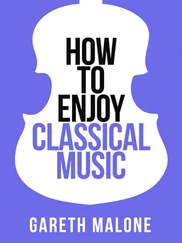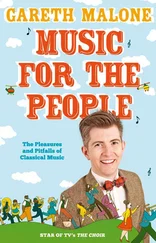STEPHEN FRY - OF CLASSICAL MUSIC
Здесь есть возможность читать онлайн «STEPHEN FRY - OF CLASSICAL MUSIC» весь текст электронной книги совершенно бесплатно (целиком полную версию без сокращений). В некоторых случаях можно слушать аудио, скачать через торрент в формате fb2 и присутствует краткое содержание. Жанр: на английском языке. Описание произведения, (предисловие) а так же отзывы посетителей доступны на портале библиотеки ЛибКат.
- Название:OF CLASSICAL MUSIC
- Автор:
- Жанр:
- Год:неизвестен
- ISBN:нет данных
- Рейтинг книги:5 / 5. Голосов: 1
-
Избранное:Добавить в избранное
- Отзывы:
-
Ваша оценка:
- 100
- 1
- 2
- 3
- 4
- 5
OF CLASSICAL MUSIC: краткое содержание, описание и аннотация
Предлагаем к чтению аннотацию, описание, краткое содержание или предисловие (зависит от того, что написал сам автор книги «OF CLASSICAL MUSIC»). Если вы не нашли необходимую информацию о книге — напишите в комментариях, мы постараемся отыскать её.
OF CLASSICAL MUSIC — читать онлайн бесплатно полную книгу (весь текст) целиком
Ниже представлен текст книги, разбитый по страницам. Система сохранения места последней прочитанной страницы, позволяет с удобством читать онлайн бесплатно книгу «OF CLASSICAL MUSIC», без необходимости каждый раз заново искать на чём Вы остановились. Поставьте закладку, и сможете в любой момент перейти на страницу, на которой закончили чтение.
Интервал:
Закладка:
The year after Braveheart, as the Globe Theatre is finally opened after some years of campaigning by Sam Wanamaker, there were Oscars for Rachel Portman for Emma; and Gabriel Yared for The English Patient, which scores a direct hit, particularly with its delightfully ursine title, Rupert Bear. Ahh, bears. Don't you just love 'em? Yummy. Anyway, 1997. Princess Diana is dead, Hong Kong is returned to China, and the Titanic does anything but sink. I always love hearing a composer playing his own music, whether it's Peter Maxwell Davies playing Farewell to Stromness - readily available -or even Robert Schumann playing his own 'Traumerei' - a little more rare - there's something about it that makes me listen with fresh ears. James Horner's recordings of some of his own music to the Titanic are in this category.
Now, in 1997 Stephen Warbeck had had some success with the music to Mrs Brown, but his 1998 offering brought him a nice, shiny, golden Academy Award. And very lovely it is too. Great film. Great score. It is Shakespeare in Love. Gorgeous.
Now, skipping on to the year… 8300. A new millennium. By now, we've had the Clinton-Lewinsky saga, Elgar has got himself on the back of the amp;Z0 note - good thing too - and we are in the age of the Euro. All this, and a cult hit for Tan Dun with Crouching Tiger, Hidden Dragon. Beautiful yet haunting music it is. To 8001, though -foot and mouth, 9/11. A testing year. Plagues and terror - it was ever thus. The films of the year, musically speaking, are possibly… Stephen Warbeck - Captain Corelh's Mandolin Howard Shore - The Lord of the Rings - The Fellowship of the Ring John Williams - Harry Potter
Three of the films of 2001 further signalled the rise and rise of movie music. In terms of Oscar honours, while John Williams is the second most nominated and rewarded Oscar composer, with thirty- seven nominations and five awards, it is Canadian Howard Shore who has appeared to come out on top, recently. Shore's scores to both The Lord of The Rings - The Fellowship of the Ring and The Lord of the Rings - The Return of the King'both won him Oscars at the 74th and 76th annual Oscar ceremonies.. • «r: l/\Pf
ALL MOD CONS
S
o, there it is. Some of the film music of the nineties and noughties. Is it the new classical music? Well, it could be. But, as I said a litde earlier, there has been the 'obligatory backlash' to the crash-bang-wallop music of the avant garde, the 'what the***!' music of the arch-modernists. And this, too, has created a whole new, different, more accessible breed of composer. Some of them new, some of them old, but all of them with a different outiook. Film composers? They're done and dusted. Allow me now, if you will, to quickly zip back to 1992. Classical music 'post' Classic FM, if I could be so bold. Where is it going? What's it all about? And so on, and so forth. Well, let's crack on and find out.
Hang on to your G strings and clasp tight your bow - we're off. 1992 was the year Classic FM launched and it didn't take long before the first discernible 'Classic FM hit' was born. And wow, was it a intriguing one.
It actually came in 1993. Steffi Graf beat Jana Novotna to win her third consecutive Wimbledon title; and Roddy Doyle won the Booker Prize for Paddy Clarke Ha Ha Hal When Gavin Bryars recorded a down and out singing an odd little ditty to the glory of God on the streets of London, he didn't quite know what to do with it. So, he went back to his studio - you see, that's already pretty different to the composers of old, isn't it? - and set about looping it, over and over again, with an increasingly loud and insistent string backing. The result was strangely moving and frequently leaves many people in tears. Again it stayed in the charts, week after week, haunting the airwaves. Sadly, the singer is now dead, but every time we play him, the phone lines light up with people wanting to know who's singing. The name of the piece is the enigmatic Jesus' Blood Never Failed Me Tet and I think it is up there on a par with Mozart's Ave Verum for sheer beauty.
Still, in 1993, another 'curve ball' here. As I said earlier, the somewhat obscure Polish composer, Gorecki, actually wrote this piece in 1976, just as One Mew over the Cuckoo's Nest was sweeping the board with five Oscars at the Academy Awards. Then he just put it in his bottom drawer, in his home town not far from Auschwitz, and largely forgot about it. In 1993, however, a new recording was released, featuring the soprano Dawn Upshaw and the London Sinfonietta. This time round, though, it was a different story. The melancholy wailing of this Symphony of Sorrowful Songs seemed to strike a chord, and it went on to sell by the million, and become one of the music stories of the nineties.
As the tide of classical music began to take a turn for the better, the new year of 1994 dawned: a year in which the World Cup was scheduled for its quadrennial return. High up on the list of many people's concerns was not just 'Will Germany Win it Again?', but also, 'What are we going to do for a theme tune?' Four years earlier, in a stroke of genius, the powers-that-be had decided to ride the wave and harness the surge in popularity of classical music. And so, for their football World Cup theme of 1990, they'd looked to both Giacomo Puccini and Luciano Pavarotti. 'Nessun dorma' might sound like a Japanese people carrier but in 1990 it put Puccini on to the football terraces. I think Giacomo, the people's composer of Italy, would have loved it.
'Nessun dorma' is always a little bit of a problem in the opera house because the cheeky devil Puccini didn't put an end on it - it just scampers hurriedly on to the next bit of the opera. As a result, if you don't know this, and you inadvertently jump to your feet shouting 'Oh I say, that man, bravo, what?', well, then you don't half look a right pillock. That is, if you are even heard, above the deafening | nillon of mobile phones that seem to go off more or less everywhere these days. In 1994, the World Cup came from America, and Bernstein's West Side Story was commandeered to act as the signature tune, but it didn't quite emulate the success of its Italian counterpart. Now onward.
Another interesting one came along a couple of years later, leaving a very significant marker in the sand, as it were. It was 1996. Let me help you place it - CJD is identified as the killer of ten people in a macabre link to so-called 'mad cow disease'; a Big Mac costs Ј2.70 and England lose on penalties to Germany. Perhaps that last bit won't help you place it. Anyway, to Karl Jenkins, a larger-than-life walking Welsh moustache with a musicality to kill for but, perhaps more importantly, a one-time member of the electronic rock group Soft Machine. He made a good living out of writing music for adverts. In 1996, though, he struck gold after the music for the Cheltenham and Gloucester Building Society became staggeringly popular. Eventually, it came out on CD as Adiemus, infectiously catchy and, again, it was Number One for longer than I care to remember. And a million miles away from what 1997 was going to produce.
If it's 'Now, that's NOT what I call the sound of 1997 VOLUME 26!' that you're looking for, then I think I've got the answer. As it were.
And indeed it most definitely isn't. The music of 1997, that is. It's the work of two people: the first was Sir Edward Elgar, a larger-than-life walking English moustache with a musicologist to die for; the second is the musicologist himself, composer and all-round clever clogs, Anthony Payne. In 1997, Mr Payne unveiled Elgar's completed Third Symphony. Completed by Mr Payne, that is, with the permission of the Elgar estate. So, some sixty-three years after he died, Eddie 'The Eagle' Elgar is back in the charts. It's very much like Elvis and 'A Little Less Conversation'. Only without the hips.
Читать дальшеИнтервал:
Закладка:
Похожие книги на «OF CLASSICAL MUSIC»
Представляем Вашему вниманию похожие книги на «OF CLASSICAL MUSIC» списком для выбора. Мы отобрали схожую по названию и смыслу литературу в надежде предоставить читателям больше вариантов отыскать новые, интересные, ещё непрочитанные произведения.
Обсуждение, отзывы о книге «OF CLASSICAL MUSIC» и просто собственные мнения читателей. Оставьте ваши комментарии, напишите, что Вы думаете о произведении, его смысле или главных героях. Укажите что конкретно понравилось, а что нет, и почему Вы так считаете.










